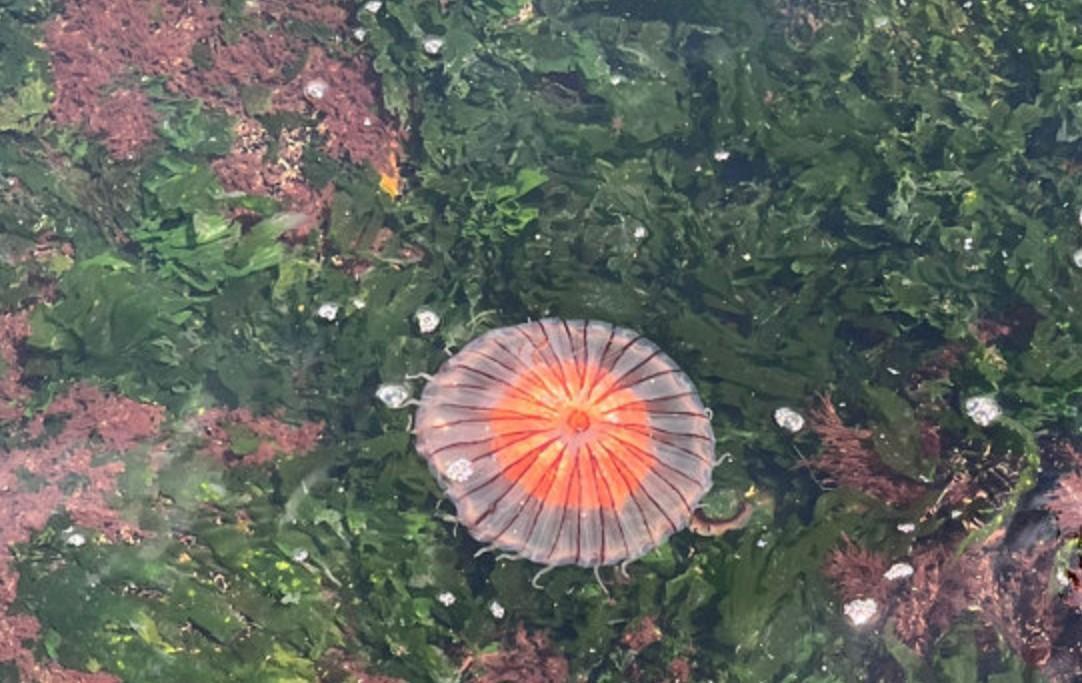
The population of poisonous compass jellyfish, which unlike other marine species can thrive in warm water, has increased in the Marmara Sea as the temperatures are rising with the onset of summer, making the sea a perfect habitat, warns an expert.
Prof. Dr. Melek İşinibilir Okyar, Dean of the Faculty of Aquatic Sciences at Istanbul University, made evaluations about the poisonous compass jellyfish, which lives in the temperate regions of the Atlantic Ocean, entered the Erdek Bay in the 2000s and showed an incredible growth rate between 2008 and 2009.
Okyar stated that experts estimate this species is carried to the Marmara Sea either by currents or by ballast water of ships.
“As with all jellyfish, this species also has caustic capsules, which are microscopic organs used to protect from enemies and catch their prey. The effects of the caustic cells on human contact are burning and itching,” Okyar warned.
Stressing that the effects of the venom may be stronger in people having allergies, Okyar noted that contact with sensitive areas such as around the eyes, nose and mouth should also be avoided and under no circumstances should fresh water be allowed to touch the affected area, as fresh water and showers activate the venom.
“After washing the contact area with sea water, pour ammonia or vinegar over it. Go to the nearest health center to avoid health-related concerns,” Okyar added.
Meanwhile, Prof. Dr. Mustafa Sarı, the dean of the Faculty of Maritime Studies at Bandırma 17 Eylül University, pointed out that the increaisng growth rate of this species indicates the severe level of pollution in the sea.
According to Sarı, waste released into seas increase the amount of inorganic nutrients, such as nitrogen and phosphorus, and therefore causes an upsurge in algae species.
“The increase in algae results in an increase in the animal plankton that feed on them. And this leads to an upsurge in jellyfish species that feed on zooplankton,” Sarı said.